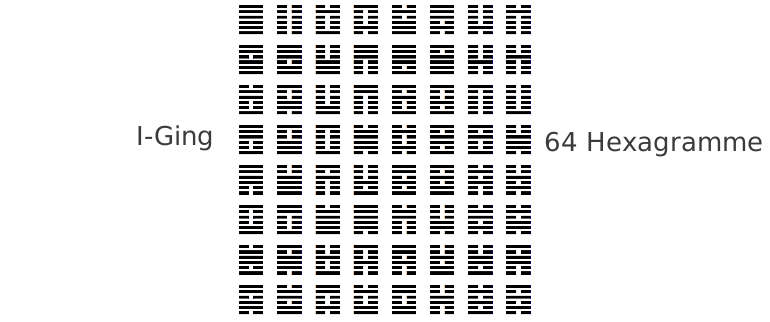I Ching - The Book of Changes
 The I Ching is the root of Chinese philosophy and the foundation for both Confucianism and Daoism (Taoism).
The I Ching is the root of Chinese philosophy and the foundation for both Confucianism and Daoism (Taoism).
It is the oldest Chinese text and compared in it´s significance to the Bible and the Koran. It first gained fame as a book of oracle and magic, later comments called it a book of wisdom.
The oldest part of the I Ching describes an arrangement of 64 hexagrams (a figure from six lines) and corresponding texts. The central statement of the I Ching is that the world as a whole is subject to constant changes. The polar primordial forces Yin (the receiving, the darkness, the earth) und Yang (the creative, light, sky) form the world and are determined by certain laws.
In the West the I Ching became primarily known by the translation and comments of the sinologist Richard Wilhelm. This was a friend of C. G. Jung, who considered the I Ching an opportunity to access to the subconscious.
C.G. Jung wrote in the obituary on Richard Wilhelm:
"The science of the I Ching is not based on the principle of causality, but on a not yet named - because at us not occurring -. principle which I have tentatively called the Synchronistic Principle".


